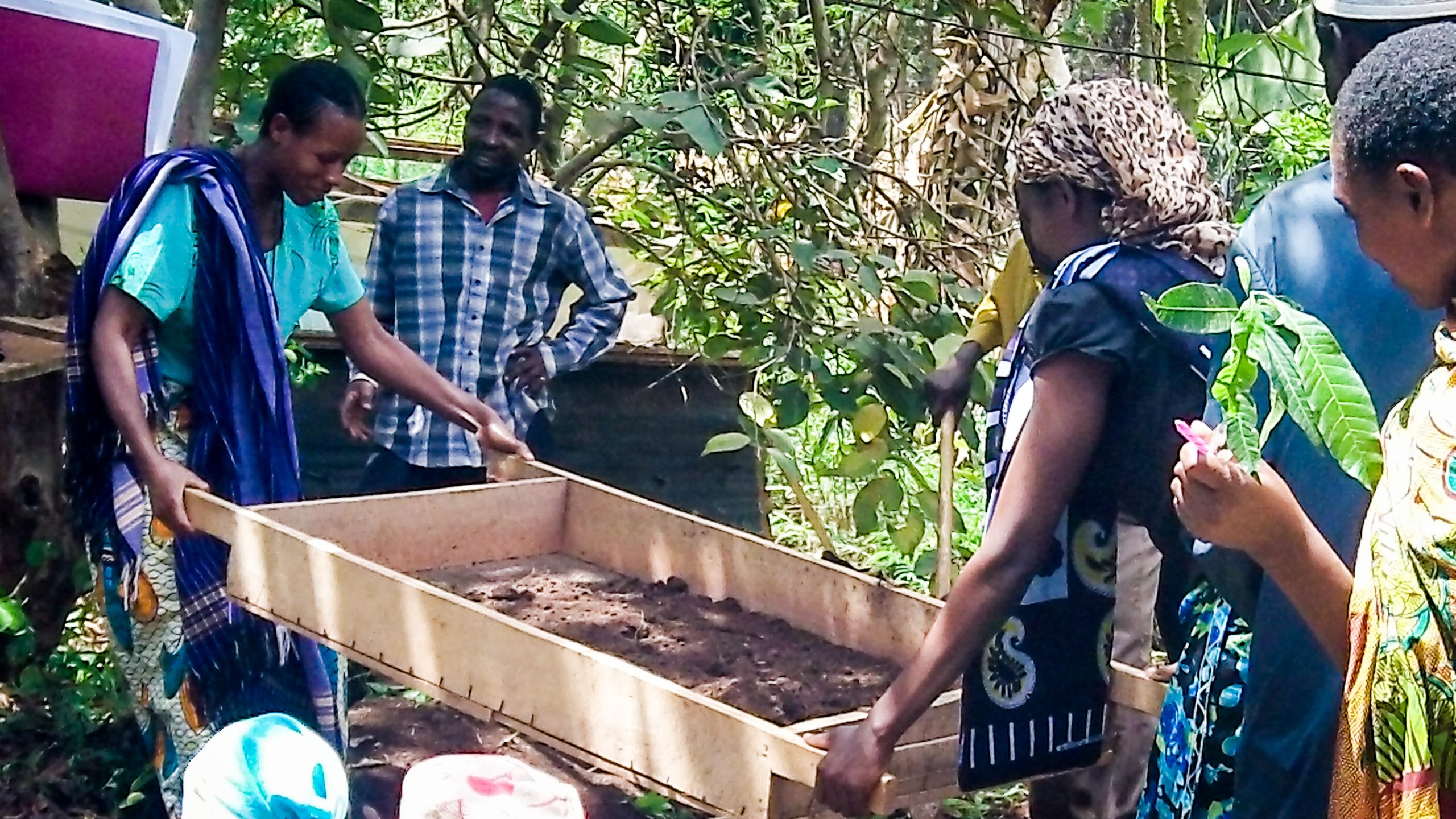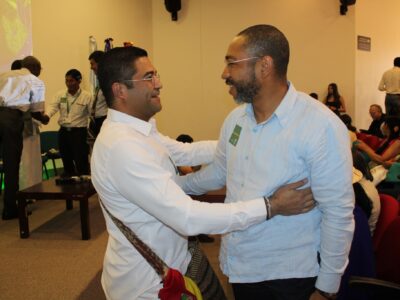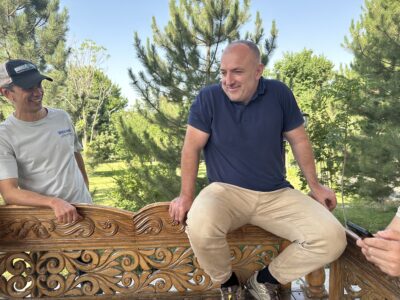
MAVUNO Farmers Cooperative members learn about soil health
When you think of a cooperative, or a co-owned enterprise run by its members for their mutual benefit, what do you envision? Do you imagine a business? Do you picture people coming together for the betterment of their community? Perhaps you picture an enterprise that not only sells a product or service, but also markets it to grow its profits and that of its members. If any of these scenarios came to mind, you would be correct. A co-op can be all those things and more.
I experienced co-ops for the first time in rural, northwestern Tanzania in 2012. I was studying sustainable development and helping the MAVUNO Farmers Cooperative with a grant they received from an international donor.
At the time, my understanding of co-ops was limited. I wasn’t well-versed in the Seven Cooperative Principles, or what distinguishes a co-op from any other business. Looking back, I see the economic benefits and concern for community. I also see how democratic and voluntary participation, education, and training play important roles.
While learning the Kiswahili language in Tanzania, Professor Justin Osward taught me to use the verb kuomba, “to beg,” when ordering food at a restaurant or asking for an item in a store. When he explained the word to me, I could tell it encompassed much more than simply begging. Life centers around community in Tanzania. You often call friends your sisters and brothers and help your neighbors, regardless of your own situation. Kuomba, I learned, more accurately means “to borrow,” because in Tanzanian culture everyone collectively owns everything for the good of the community.
That’s how I like to think of co-ops. They may be just another business model, but the benefits members gain—beyond higher profits—such as education, information, and relationship building, mean the most.
In a TED Talk given by Michael Green (posted above), a social progress expert, Green discusses the United Nations’ Sustainable Development Goals and what it will take to reach them by 2030. Relying on economic growth alone won’t get us there, he says. Green argues that covering basic needs, increasing access to education, and elevating human rights and environmental sustainability are key to reducing poverty and improving lives. We cannot rely on the private sector to do it alone; we need to advocate for better economic opportunities, while also working to ensure inclusion and access for all.
Over the last five years, I’ve seen co-ops do just that. In Indonesia, I saw a rural community get access to health care when its coffee co-op started selling its product internationally. In Uganda, I saw a 24-year-old mother of three send her children to a private school thanks to the higher price she earned selling her maize as a co-op member. In Liberia, I saw women get elected to leadership roles of their cocoa co-ops.
As a project coordinator for ACDI/VOCA, an organization founded by the US co-op community and committed to empowering and strengthening communities, businesses, and individuals, I believe we can reach these goals.
From helping launch the largest fertilizer producer in India to helping an Ethiopian co-op achieve Starbuck’s Black Apron status, ACDI/VOCA embraces the co-op model as a solution to end poverty and empower people.
As we celebrate Co-op Month this October, I leave you with this thought and challenge you to find a co-op to support in your community. They are often present in the milk and orange juice we drink, the electricity that powers our homes, the credit unions we trust with our hard-earned wages, and the health care services we choose.
Comments“The problems we face today, violent conflicts, destruction of nature, poverty, hunger, and so on, are human-created problems, which can be resolved through human effort, understanding, and development of a sense of brotherhood and sisterhood.”
– The 14th Dalai Lama









